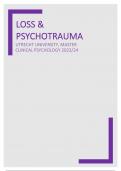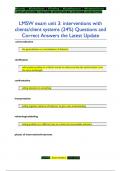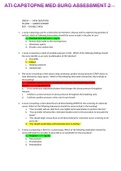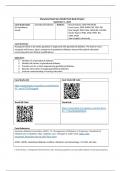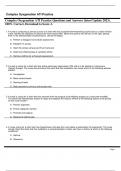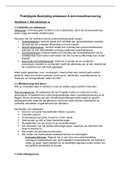Samenvatting
Loss & Psychotrauma - Complete Summary (Lectures, Articles, Workshops) - UU 2023/24, Master Clinical Psychology
- Instelling
- Universiteit Utrecht (UU)
Complete Summary of the Loss & Psychotrauma course 2023/24 at Utrecht University for the Master Clinical Psychology. Includes detailed notes on all lectures and workshops as well as comprehensive summaries of all mandatory articles (You can double check the included articles in the document's previ...
[Meer zien]
